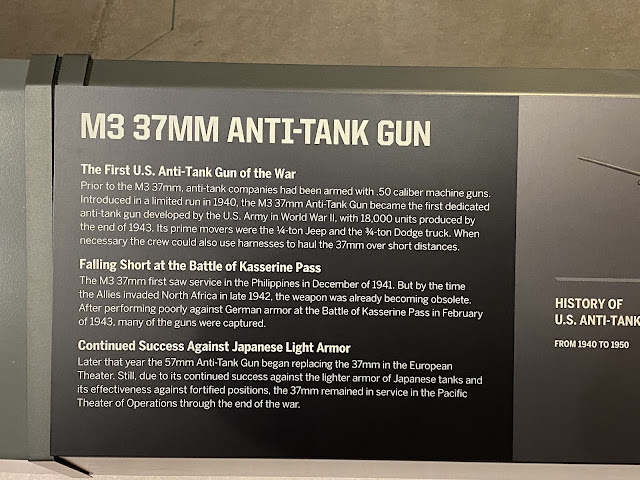Ford introduced the first factory assembled pickup truck.
Ostensibly exploring the practice of law before the internet. Heck, before good highways for that matter.
Tuesday, April 15, 2025
Wednesday, April 15 1925: The Introduction of a Trailblazing Highways Map Guide
Saturday, April 12, 2025
M939 Truck. National Museum of Military Vehicles.
This is a M939 5 ton truck. A heavier U.S. military truck is behind it. I can't identify what the truck is carrying, unfortunately.
Part of the final series of US 6x6 trucks, it went into production in 1982 and were produced in the US only for a few years. They're still produced in South Korea. It featured a diesel engine and an automatic transmission.
Last edition:
LARC-V. National Museum of Military Vehicles.
Thursday, April 3, 2025
Amphibious vehicles of World War Two. National Museum of Military History.
Last edition:
Various World War Two Artillery pieces. National Museum of Military Vehicles.
Wednesday, March 26, 2025
M38 A1s, National Museum of Military Vehicles.
Last edition:
M151 Jeeps. National Museum of Military Vehicles.
Tuesday, March 25, 2025
M151 Jeeps. National Museum of Military Vehicles.
The M151 "Mutt" entered service in 1959 and carried on into the 1990s. It had fantastic off road capabilities, and was also fantastically dangerous, given its independent wheel suspension system.
The last Jeep to see general use in the U.S. military, it was replaced by HumVeh's, although speciality vehicles, and even modern commercial Jeeps, continue to see some use. In these examples, the radio mount for a period radio is displayed.
Last edition:
M32 Tank Retriever, National Museum of Military Vehicles.
Friday, January 31, 2025
Saturday, January 31, 1925. Leonhard Seppala and Togo.
The longest part of the Serum Run was undertaken by Leonhard Seppala with lead dog Togo. They ran through the dark across the dangerous ice of Norton Sound.
Seppala was Kven, a group related to the Lapps. He's a major figure in the history of the Siberian Husky dog breed.
The Saturday magazines were out.
Sunday, November 10, 2024
Artillery and Prime Movers. National Museum of Military Vehicles.
Last edition:
Saturday, November 9, 2024
SPW 152 "Iron Pig" (BTR 152). National Museum of Military Vehicles.
This peculiar looking vehicle is an East German SPW 152 "Iron Pig", which was their variant of the Soviet BTR 152. The armored vehicle was designed as an armored personnel carrier, but utilized for other things as well. The gun in this one is likely an anti-aircraft gun.
The Jeeps in these photographs are M151s, which will be dealt with elsewhere.
Last edition:
Friday, November 8, 2024
Anti Tank Guns. National Museum of Military Vehicles.
Thursday, November 7, 2024
Friday, November 7, 1924. A balanced budget.
The Weimar Republic announced the first balanced German budget since the end of World War One.
The Soviet Union produced its first domestically manufactured motor vehicle, the AMO-15 truck.
The Alvarado Hot Springs was created when a natural gas exploratory well taped into a geothermal pool in Los Angeles County. It was operated commercially as a hot springs facility until at least 1961, following which it seem to have disappeared from history.
2BE began operating commercially, broadcasting twice a week, in Sydney. Australia's first commercial radio station would close in 1929.
Last edition:
Thursday, November 6, 1924. The 100th Anniversary of Christopher Robin and Winey the Pooh.
Friday, November 1, 2024
Friday Farming. The vehicles that changed the West.
Lex Anteinternet: World War Two U.S. Vehicle Livery: National Museum...:
Wednesday, October 30, 2024
Early Jeeps: National Museum of Military Vehicles Dubois Wyoming.
The request for a 1/4 ton truck came out just before World War Two and one of the company's that responded was Bantam, a vehicle manufacturer which specialized in small cars. Their introduction was very much like what the MB would become, except it was lighter.






































































